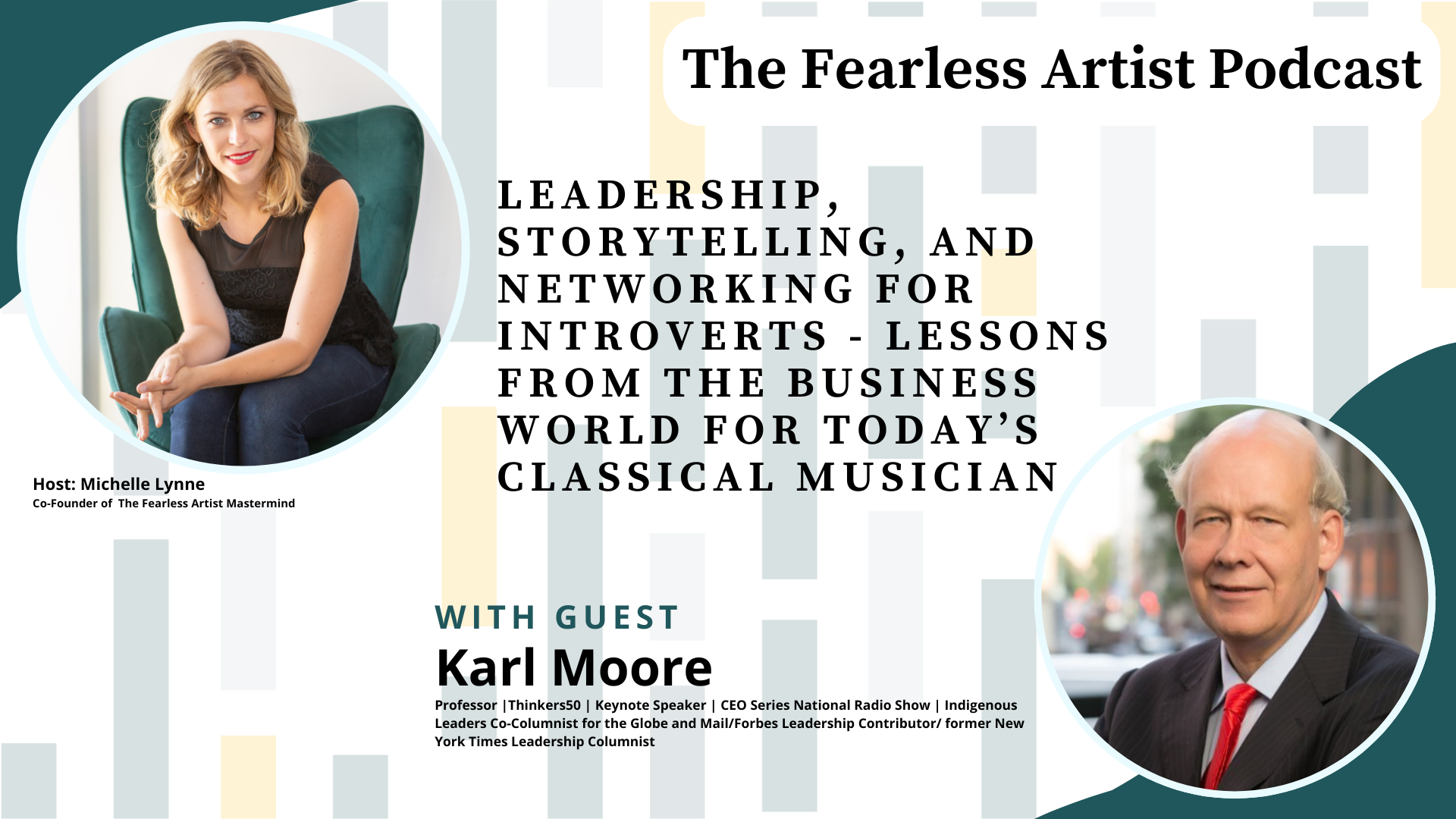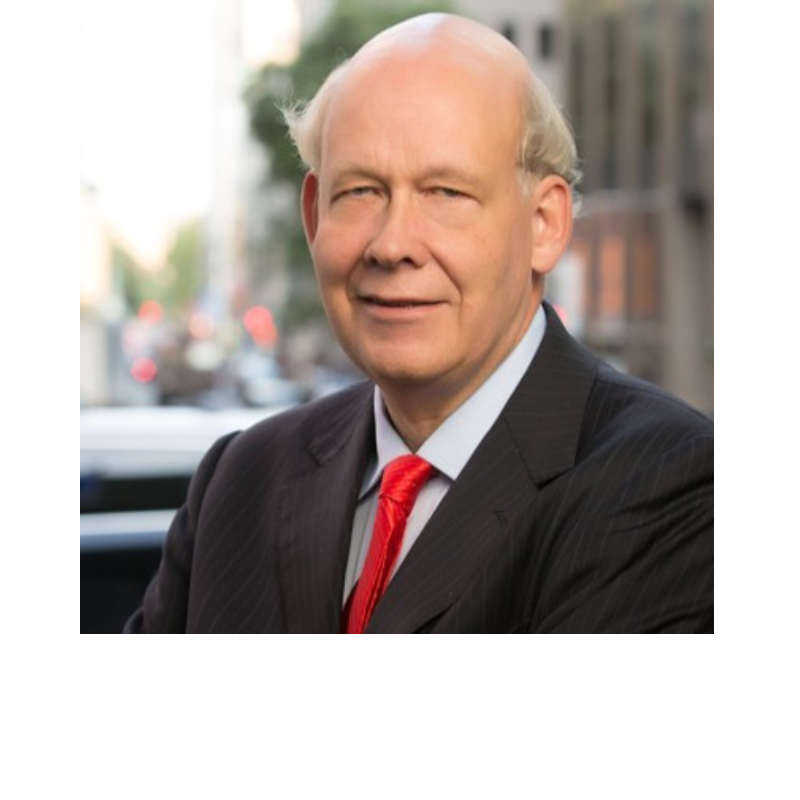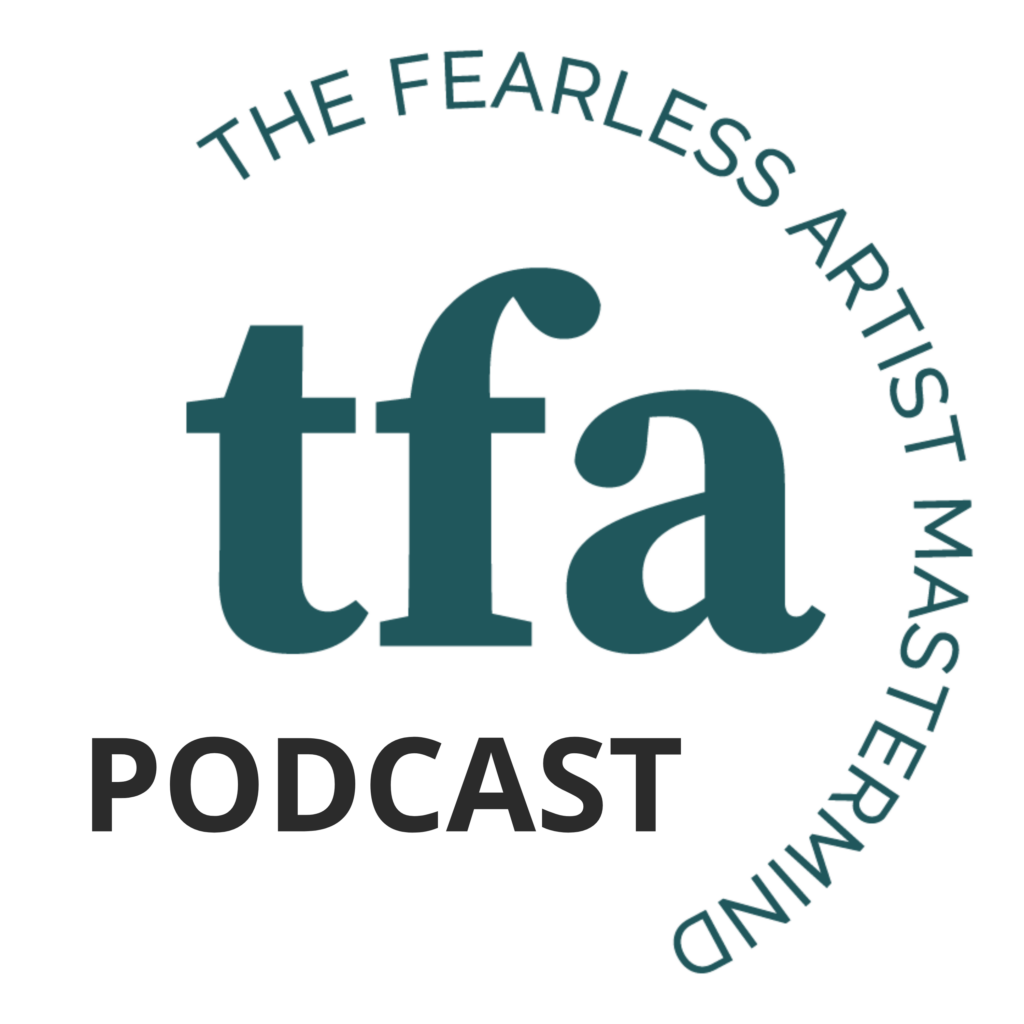Leadership, storytelling, and networking for introverts – lessons from the business world for today’s classical musician

Guest:
Karl Moore
Professor |Thinkers50 | Keynote Speaker | CEO Series National Radio Show | Indigenous Leaders Co-Columnist for the Globe and Mail/Forbes Leadership Contributor/ former New York Times Leadership Columnist
Karl Moore is an award-winning teacher, researcher, and internationally recognized leader in the study of Introvert/Ambivert/Extroverted Leaders. Karl has interviewed +1,000 CEOs and other senior leaders such as Prime Ministers, Cabinet Ministers, Premiers, etc.. Among the most of business profs in the world. His CEO interviews have been published in print and on-line by the Globe and Mail, The New York Times, and Forbes.
He was nominated for the Thinkers50 Distinguished Achievement Awards in the Leadership Category as a top thinker in the area. He does executive teaching & speeches on Introverted/Ambivert/Extrovert and Effectively Working with Millennials. His latest book (number 10) Generation Why: How Boomers Can Lead and Work with Millennials/Generation Z, came out in May, 2023. In 2021 he did a research project with McKinsey looking at Fathers who stay home with newborns, this year he is working with them on when do growing startups bring in corporate types, whom do they bring in and how they retain them. His next book, Introverts/Ambiverts/Extroverts in the C Suite is scheduled to be out in 2024.
Karl has received awards at McGill for Teacher of the Year, Principal’s Prize for Public Engagement through Media and the Professor of the Year from the McGill alumni association.
He has taught on executive/MBA programs at Oxford, IMD, Stanford, Harvard, Cambridge, LBS, INSEAD, Duke, IIM (Bangalore), Keio, Renmin (Beijing), Darden, Skolkovo, HEC, and McGill, where he is Associate Professor at the Desautels Faculty of Management. He has been an Associate Fellow/Fellow, Green Templeton College, Oxford University, for +20 years, he was full-time faculty for five years.
He has produced a very substantial volume of impactful research: +4300 citations; 28 refereed journal articles, 10 books, 12 book chapters, 25 executive journal articles, & hundreds of newspaper pieces. He has been an Associate Editor of the Academy of Management Perspectives. His Forbes.com blog, the weekly video interview for the Globe & Mail and his YouTube channel have received over 5 million views.
In 2014 he started a radio show, the CEO Series where he interviews CEOs one-on-one for an hour. You can listen on the show website: https://soundcloud.com/cjad800/sets/the-ceo-series Among others he has interviewed Justin Trudeau, Nobel Prize winner Muhammad Yunus & former Google CFO, Patrick Pichette.

Subscribe to The Fearless Artist Podcast
Intro/Outro music by Michelle Lynne • Episode produced by phMediaStudio, LLC
